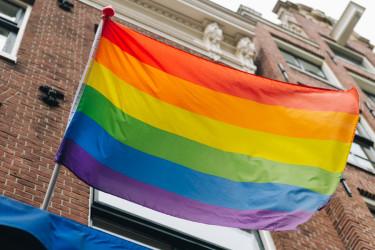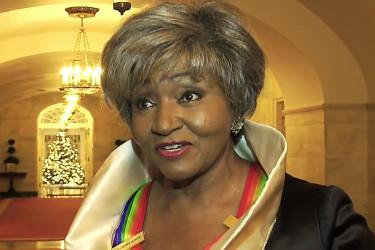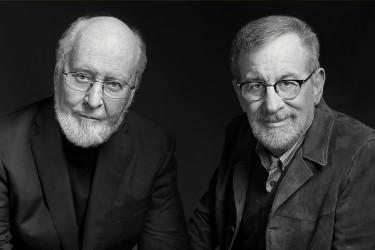
Classical California’s Maggie Clennon Reberg had a chance to chat recently with pianist, educator, and music scholar Sara Davis Buechner, on a wide variety of topics: from Michael Morgan to Mozart, finding new repertoire, her experience as a trans woman in the world of classical music, and loving baseball.
MCR: We’ll get the hard part over with right away. Since Michael Morgan’s passing in August of 2021, the seasons at Oakland Symphony have been simultaneously heart-warming and heart breaking, the roster being filled with musicians who have had close ties with this beloved figure in the bay and beyond. Sara, can you speak a little bit about your upcoming performance and perhaps your relationship with Michael Morgan?
SDB: I had the pleasure and privilege of working with Michael with every single one of the orchestras that he conducted in Oakland, Sacramento, Bear Valley, and in Chicago with Chicago Sinfonietta. Michael just had a certain way on the podium that was extremely theatrical and quite unique and individual. And when he was really happy with the concert, you knew it! He made you feel so good as a performer, it was a marvelous thing to see. He was just a delightful character, full of life, full of energy, full of optimism, enthusiasm and imagination. We actually didn’t really speak at great length about our own artistic journeys through prejudice and difficulty. But I think in our core, somehow we had a certain kinship there, something that we recognized that we had worked in a field where there were a lot of extra obstacles, and yet we were having fun on stage. I shed quite a few tears when he passed. But when I think of Michael, I just always think of him waving a stick and smiling the hell out of life.
MCR: We do a feature on the morning show every day, called Mozart in the Morning. I’ve dug deep into your YouTube channel, Mozart Moments, and it’s really a fantastic teaching tool from the technical side. So, clearly we have our love for this guy in common!
SDB: When I think of Mozart’s compositions, one thing that really always strikes me is the perfection of form and proportion. You never feel like anything has gone on a little too long or been not stated long enough, or that the balance of the entire composition has any flaws about it whatsoever. Mozart’s Overture to the Marriage of Figaro is probably the music I’ve known the longest in my life. I think I was three or four years old when this music would come on the radio in our living room in suburban Baltimore, every afternoon at 4:30. And my mother noticed me walking to the radio at that hour every afternoon. And because of that, she found a piano teacher for me. She figured I had some sort of musical connection there. I was very, very drawn to all of Mozart’s music and also drawn to his life story as a person from my earliest memory. When I was a few years older, around probably age eight or so, and now taking piano lessons, we would go to the Peabody Institute in downtown Baltimore. I went into that library and discovered the letters of Mozart. And my parents were just proud as punch! Here’s their little kid, hauling around that big fat volume of Mozart’s letters. And I opened it up and I saw four letter words and disgraceful, obscene descriptions. It was the filthiest crap I had ever seen in my life!
MCR: Well, of course it was, that’s Wolfy, that’s the good stuff!
SDB: It was really good for me. I think a nice early, early exposure to that side of Mozart can be very good for you!
MCR: You will get no argument here at all! Will you talk a little bit about the Mozart Marathon concerts from Tokyo?
SDB: I had been giving a number of concerts in Japan and the manager of a very important hall in Kyoto asked me, would I like to do all the Mozart sonatas? And I said, “My God, that’s a dream come true, I wanted to do that all my life.” So we did it. It was a four-concert series, and around the same time I was also playing some concerts with a small orchestra in Tokyo called the Tokyo Sinfonia. The conductor asked me, “What’s your dream idea? What would you like to do next?” And I said, “There are 27 Mozart concertos. How about we do them all?” And he took me dead seriously. We did them in a series of eight concerts over four weekends. It was an extraordinary journey to take, sort of like an actor going through all of the Shakespeare roles, or as a string player playing all of the Haydn string quartets; you will effectively walk through the steps of that composer’s life because the concertos for Mozart are such an integral part of his output in terms of not only what he wrote, but the fact that he was a pianist. They’re very autobiographical. So I would say of all the works of music, to know the piano concertos of Mozart is to really know Mozart. And, when that was over, I just I felt like, okay, now I can die. I can climb into the grave and die. And as they’re closing the coffin, I’ll say, “Don’t forget, I played all the sonatas and all the concertos of Mozart.”
MCR: May I tell you a story? I want you to know how I found you. Years ago, I was working at a station in Chicago, and my dear friend and colleague, Candice Agree, discovered in her personal library of recordings that she had your Gershwin recording. And then we started digging about and we found the piano music of Dana Suisse. And then I was a goner! I was hooked after that! That’s how I found you, so how did you find her, as well as so many amazing and yet unfamiliar composers whom you have recorded?
SDB: From an early age, I always had a thirst for unusual repertoire, or not so much unusual, but really excellent music that doesn’t get played. Suisse is a fabulous composer. I mean, the pieces are irrepressibly American, they’re really charming. They’re deftly written for the piano. And unlike George Gershwin, with whom she was often compared, in addition to being a great songwriter of famous hits, she really did take the time to study music quite seriously with Nadia Boulanger in Paris. The shorter piano pieces are all top-drawer. That music appealed to me on so many levels; as being American, as being also the work of a female composer, as being of this great jazz age. It’s not jazz music, but it’s using jazz idioms and popular music sounds that are irrepressibly American. You can sort of feel pumped with pride a bit. It’s like, that’s my sound, That’s me, that’s my place, It’s a wonderful feeling.
MCR: One of the most compelling reads about you is your interview with the magnificent Stephanie Chase from 2016. Two quotes from that interview really stick with me. One of them is when you said, “To be outcast is to be given the special opportunity to redefine all that is important in one’s life.” And the second one is, “When you stop playing games with yourself and everyone around you, you understand more clearly the games now swirling around you as a non-participant.” There is a lot of freedom in those realizations. We want to believe that things are better now in 2023 than they were in 2016, that this world of classical music is more welcoming and inclusive to a greater degree, than it was seven years ago, and that we are making progress. I reckon a lot of what I’m asking you is in the autobiography that you’ve written. So (without spoilers) in terms of your life as a trans woman and an artist in classical music, how are things now?
SDB: Have things improved? I go back and forth on that. Have things changed? Yes, things have definitely changed. We see different attitudes. Certainly as an educator, I see that every piece of bureaucracy that comes across my table is marked with some special box for DEI. The minute you bureaucratize something, you’ve defeated its purpose. I mean, the idea of Diversity, Equity and Inclusion means your eyes, ears, minds and hearts should be so open that you’ve transcended all of this; not that you’re ignoring somebody else’s special qualities, but you’re celebrating them. And if you need a piece of paper with bureaucratic reminders to make you do that, you’re in sad shape. When I first transitioned, a lot of the discrimination was quite overt, really terrible things happened to me, quite out in the open. And what do we see today? We see these political things happening in Texas and Florida and other places where they’re basically just trying to scrub LGBTQ out of the history books or something. They just sort of erase you as a human being and they don’t have to deal with it. How this can happen in a country that truly values equality, inclusion, diversity, equity? You know, I’m happy that I went through this transition, because I never imagined that the gender transition would take me to a wider appreciation of the struggles of all people; indigenous people, gay men, lesbian women, all kinds of people who are disenfranchised in this country. Is it not as plain as the noses on our face that some live in incredible poverty and discrimination in this country? Why is there any debate on this issue whatsoever? Why do we need seminars to understand it? When I transitioned, a friend speaking to me in good faith actually suggested to me a guy in Romania who runs a music school, and maybe you can live there and you can teach there. That was his natural response to my saying, I’m going to try to change my gender-he thought, well, okay, your life here is ruined, you better get the hell out of Dodge. So let’s say it’s gotten a lot better than that.
MCR: Opening day 2023 is March 30th. it’s the first opening day since 1968 that all teams are scheduled to play on the same day. I bring up baseball because we both love baseball and you probably know where I’m going with this. The video on your website, the beautiful Buechner-infused musical achievement, Meet the Mets. How did that get created? It is so fantastic!
SDB: I have to give kudos to my erstwhile agent Carrie Feiner of Westchester County, New York. She married the loveliest man in the world named Michael Trenk. Mike is from Queens, an is a lifelong diehard Mets fan. I had been a Yankees fan for many years when I lived in New York. Moved to Vancouver, where I voted for the Mariners, spent some time in Japan, where I actually became an honorary member of the Osaka Hanshin Tigers Baseball Club. So here I am, back on the East Coast. I couldn’t root for the Yankees again because I thought they committed total heresy in tearing down the old Yankee Stadium. You don’t rip up Carnegie Hall and build a replica, you know?! Sorry. But I love New York. And I thought, you know, the poor lowly Mets, maybe they need me. Then Mike said, “You know, you should make a piano version of their theme song, Meet the Mets.” And I thought, well, that’s a dumb idea… and so I did it! Then I made that ridiculous video of it and then things started to go viral. Like more than anything classical I’ve ever done. Eventually, that thing did make its way to some people who work for the New York Mets, and I’ve been up to Citi Field twice to play it on Pride Night. There have been a couple of times where I’ve been in New York and somebody has stopped me and said, “Hey, you’re that gal who does that Mets video!!”







